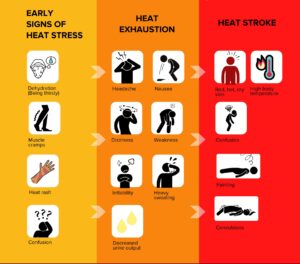
[As Starbucks reports quarterly profits of $40 billion, they try to quash organizing efforts of baristas and other staff who are voting to unionize for better working conditions. Recently Matt Crichton talked with one of the baristas at the Cooper Point Village Starbucks about the employees’ experience trying to form a union. The interview has been condensed and edited for clarity. We are not using the interviewees’ name because of concerns about retaliation by the company.]
MC: How did you come to work at Starbucks in Olympia?
Barista: I was working in the medical field and it was very high stress during the pandemic and I moved here to be with my best friend. Because I can’t drive, I had to find work close to where I live. There was a Starbucks down the road (Cooper Point Village) and after a long wait, I started working there in January this year. I am a barista, and I typically open.
MC: What was it like when you started work there?
Barista: I was getting about nine hours per week. I had to hound my store manager at the time, saying I needed 30 hours a week, before that changed. Hours have been really finicky for every barista. It felt like a rotating door—someone new every week so hours were never consistent.
MC: Talk about the campaign to organize the Cooper Point Village Starbucks.
Barista: After I was at Starbucks about two weeks, a co–worker asked if I would be interested in forming a union, and I said “heck, yeah.” During the early stages, I wasn’t super involved. It’s hard to help the union effort when you’ve known people less than a month, and you’re trying to make friends. Once I got comfortable, I got more involved. I remember sitting in one of my co–workers’ bedrooms with six other people, we had set up a Discord channel (an internet chat group) to share our interests and skills and to stay in touch with Seattle Starbucks baristas trying to unionize.
It was an exciting time, of feeling very small, and then learning there are folks in Buffalo doing this, and in Seattle, and all over the Pacific Northwest. Even though we were the first SB in the Pacific Northwest to pursue this, it’s not just us.
When all the pressures are concentrated on us, we got close to our breaking point. Finding out that other stores are voting to unionize takes away some of the pressure. It’s like this, when you stand on one egg, it shatters. If you stand on a dozen eggs, the weight is distributed. That’s what a union is—it’s solidarity with each other. It’s workers uniting together, saying, hey, please treat us the way we deserve to be treated.
MC: The Cooper Point Village store employees voted in May in favor of a union. What happened then?
Barista: We won our vote 19–2. It was a little surprising that we all wanted this because we felt like our effort was going on in the background. We were in the newspapers and being talked about. There was a huge wave of support for what was being referred to as the Starbucks/Amazon effort. This was way bigger than I thought.
When we won, we were ready to bargain for a contract. One of the things we are asking for is livable wages, and that anyone who needs full–time hours can get them.
MC: How did the company react once you won the vote?
Barista: First, shortly after the vote, the store manager said she was leaving to go back to school. And Starbucks didn’t replace her. So we don’t have a store manager. We need a store manager for all kinds of thing—for example, consistent hours. I’m not getting enough hours; most baristas have picked up additional jobs just to survive. It feels like we won our union, and Starbucks said “let’s take the wind out of their sails.” They refused to talk to us. They’re still refusing.
MC: How can they do that?
Barista: They just say, “no, we’re not going to listen to your demands,” and they give a lot of reasons that are technically legal. Every store who has unionized is ready to bargain and they’re in the same boat. We have a list of demands that are consistent across the board. We have the tools to bargain. But we have only one union lawyer. based in Philadelphia. Starbucks has many more staff on their anti–union legal team to delay and intimidate.
MC: What’s happening at the store in the meantime? What’s it like going to work now?
Barista: The company is punishing us for unionizing by not giving us what we need to run our store effectively. We’re short–staffed; equipment is breaking down. One day we were gathering to open and we thought the store was on fire. Something in the drip coffee maker had overheated and was leaking water, creating a huge amount of steam. The coffee maker got so hot I had to use a towel to yank the power cord out to stop it.
Our dishwasher broke; the refrigerator started having problems. We couldn’t make coffee or sanitizer. The only thing we could make for customers were shaken refreshers or frappuccinos. We should have shut down the store to get repair people in, but we weren’t allowed to close. We know how to use the equipment, but we’re not plumbers or electricians.
After a while, I hopped on the drive–through and told people it wouldn’t be safe to serve them because we couldn’t clean things. The community picks up on the dysfunction. It’s frustrating when service is slow, or the ticket printer is printing orders on the wrong side. It was so frustrating to feel like, yeah, I want to stay a part of this union because a lot of good can come from it, but what SB is doing is very scary.
A lot of the unionized stores are feeling the pressure of Howard Shultz’s union busting tactics: “We’re going to remove the store manager, and let them sink or swim.” Then, when they don’t perform well, SB fires the entire store. A lot of folks are scared. We wanted change to come much sooner than it is. There isn’t really a precedent for what happens when a company refuses to talk with a union.
MC: Do you still feel like the effort is worth it?
Barista: I don’t ever want to feel discouraged by the union movement. Even though things are tough, it will be worth it in the end. If we don’t keep trying to push this, nothing will ever get better. Employers are not motivated to treat their workers well. The only reason they will treat workers well is from legal pressures, pressures from workers themselves, or societal pressures. There has to be some type of pressure on Starbucks to cause them to treat workers better.
MC: Do you think the community understands the actual situation of workers and why they might need a union?
Barista: Back in the beginning of the campaign, I did a ton of research into unionizing. Pretty much every positive thing that has to do with labor, like the 40–hour work week and days off—all these came from labor unions. The general public has a hard time recognizing that, and may not know about where certain benefits come from. When someone asks, “Where do you think this benefit came from?” They don’t have an answer, they say “it’s always been that way.” And then they say, “If things are that bad, then just leave.”
MC: What would it mean to have a stable work schedule and fair pay for the staff at your Starbucks?
Barista: When I worked in the medical field, the paycheck and the hours were steady. I worked in caregiving, and there were several months where I worked 60+ hours a week, six days a week. I was exhausted, but I loved the work.
It was a huge deal for me to walk away from that. The pandemic really stressed the medical field and put a magnifying glass on issues that were already present. A lot of people felt abandoned by the system.
I have never felt that same sense of economic security at a coffee shop since I made the switch. “Don’t bother me until I’ve had my morning coffee,” is something you hear often. Providing coffee is clearly a service industry—people rely on it to do their jobs. I have the sense of being needed by the people who come to the drive–through every day who are mostly grateful.
But I’m not making enough money to afford groceries. I can’t afford rent as it is—and my rent is going up at the end of the year. Having secure hours and a secure wage would mean I could breathe a little bit. I could survive—and not just on the seven free food items Starbucks allows you! I know I’m not alone in that experience. People know this is not sustainable. But here we are.
MC: What most inspired the workers at the CP Village Starbucks during this fight?
Barista: Each other. Being able to share our frustrations has been essential, but it’s also sharing our triumphs. Caring for each other. Maybe someone gains access to a new education program that they’re ecstatic about or brings home a new pet. We love to throw little random celebrations for each other when stuff like that happens because it reminds us that we really have built something pretty amazing here. Having people we can trust is really important during this challenging and exciting time.

First. Solidarity from Vermont. It sounds like Starbucks is engaging in lots of unfair labor practices. I hope you all are documenting them. I hope this interview helps get you some community support. They need to engage.
It is also worth noting that the Starbucks workers at 5300 Capitol Blvd SE Tumwater are also facing alot of intimidation regarding their unionization efforts. Their folks would be very happy to talk to WIP about their experiences with regional management coming in with a heavy hammer